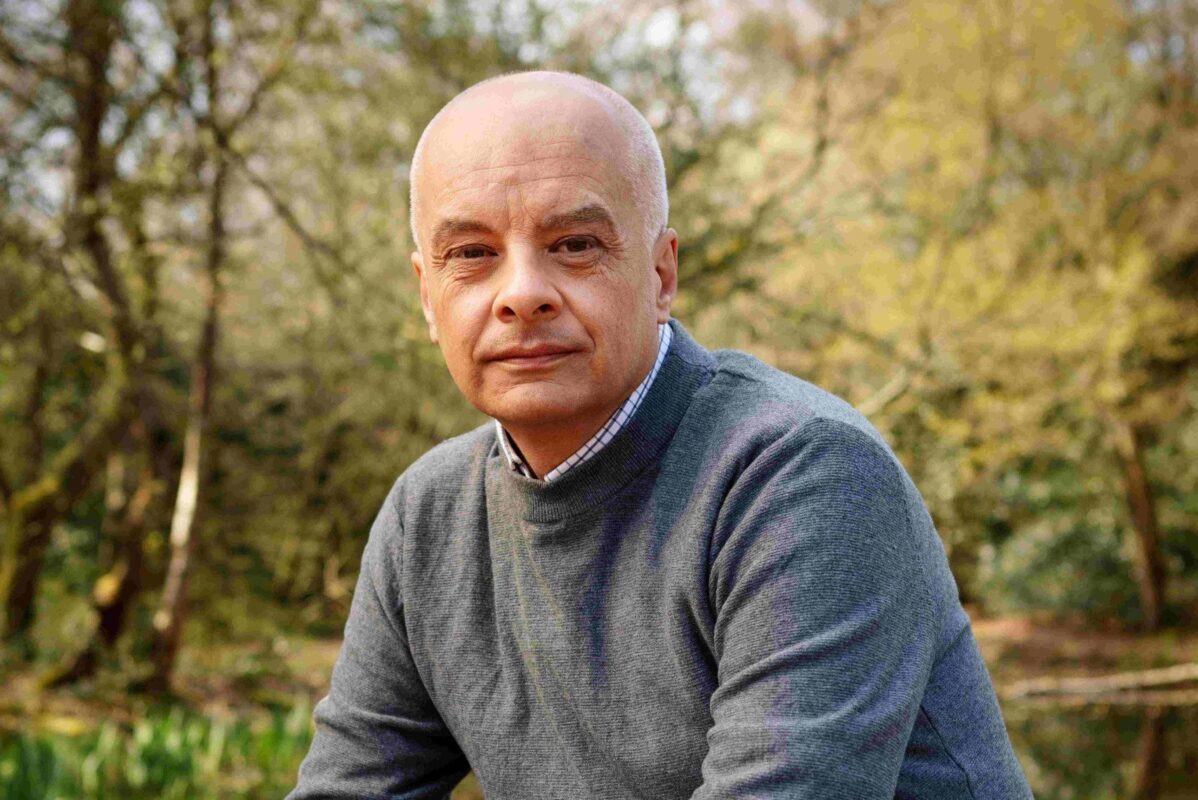Nigel Bromage spent almost two decades as a member – and leader – of the British far right. What made him leave his hate-filled path?
For almost 20 years Nigel Bromage was a leading member of the British far right, going on to join the openly neo-Nazi organisation Combat 18. After renouncing his hate-filled past, he formed Small Steps, an organisation made up of fellow reformed neo-Nazis, to try and prevent others following a similar route.
April 20 was a special day in Nigel Bromage’s calendar. One to be celebrated with music, drinks and a cake – in the shape of a swastika. It was Adolf Hitler’s birthday, and as regional organiser for the white supremacist group Combat 18, Bromage couldn’t let it pass without raising a glass to the architect of the worst genocide in modern history.
Bromage had been groomed by the far right in the early 1980s while still in school. Aged 15, he was lured into joining an anti-IRA group that was ostensibly committed to opposing terrorism. Free homebrew and tickets to punk gigs proved irresistible bait for a bored teen, and by the time Bromage twigged that he’d unwittingly signed up to a wing of the National Front, it was too late.
Drip-fed racist ideology, Bromage became consumed with hate for the left, for immigrants and for the state, and toured the UK attending marches and demonstrations, which often fared into violence. “There were a few times when I ended up in the police cells,” he recalls. “I’d sit there thinking: ‘What are you doing? This is achieving nothing.’ Then I’d catch up with the others, they’d be patting me on the back telling me how well I’d done, fighting for Britain, and I’d forget all about it. And before long, I was heading off to the next march.”
From eager foot soldier, Bromage rose through the ranks to head up the West Midlands branch of the neo-Nazi organisation, the British Movement, before leaving to join the more militant Combat 18.
“It sounds crazy now,” he says, “but when you’re in that bubble of hate, you don’t see anything other than what you’re being told. We wanted to create enclaves where we could home-school children, work for each other and live in exclusively white communities. I’d gone from being somebody who hated terrorism and violence, to embracing a racial religion which believed the only way forward was race war. “We weren’t going to start it, but we were waiting for a trigger, a flashpoint, where we’d rise up and take control.”
By the time Bromage began to question his allegiance to the far right, he’d given 16 years of his life – and sacrificed his marriage – to its misguided cause. It took another three years of soul searching before he found the courage to walk away. “I started to hate all the violence. I felt I wasn’t achieving anything and I could see it was wrong,” he explains. “But I couldn’t see a way out of this world because once you’re in it, it’s like being trapped in a gang.”

‘We have to use education, compassion and understanding, and we have to listen to people who feel the extreme right offers them a voice. We have to fill that void,’ says Nigel Bromage
The turning point came as he left a Combat 18 meeting one day to find 15 fellow extremists racially abusing a black man. Something snapped. “I told them if they wanted to get to him, they’d have to go through me,” Bromage says. “I remember his wife and kids crying in the bus shelter nearby. A couple of other guys backed me up: we got the family into a cab, gave the driver a tenner and told him to get them out of there. I decided there and then I wanted out.”
Bromage fled his Birmingham homeland for London, where he hid his past and spent 15 years doing community work, trying to atone for his wrongs. Burdened with shame, he limped home to the Midlands in 2015, where work with local councils led him to undertake a training course with Prevent, the government programme that’s designed to counter radicalisation.
“At the time, I was really worried about the growth of the far right,” he says. “I knew I had to use my past to raise awareness about how dangerous it is getting involved.” Bromage set up Small Steps, a consultancy using lived experience to lift the lid on extremism, and suggest ways to counter it. He followed up two years later with Exit Hate, which provides one-to-one mentoring for people who are seeking a way out.
We have to use education, compassion and understanding, and we have to listen to people who feel the extreme right offers them a voice. We have to fill that void
Events in the UK this summer – when disinformation surrounding the killings of three children in Southport lit a wave of unrest – have kept Bromage busy in recent months, yet he sees glimmers of hope among the rubble and flames. Requests for help have flooded in from regretful rioters, appalled with themselves for getting drawn into the violence, and also from parents worried about their children being swayed towards the far right.
“We’re trying to encourage families to have some open conversations and say: ‘Well, why did you support it? What positives came out of it?’” he says. “Hopefully we can highlight that the answer is – nothing. We have to use education, compassion and understanding, and we have to listen to people who feel the extreme right offers them a voice. We have to fill that void.”
And tolerance, he suggests, cuts both ways. “Let’s listen to why people are angry and try to find some solutions,” he says. “Let’s talk about the fact that it’s OK to be patriotic, it’s OK to support your heritage and traditions – but it’s got to be inclusive, and it’s got to be there for everybody.”


